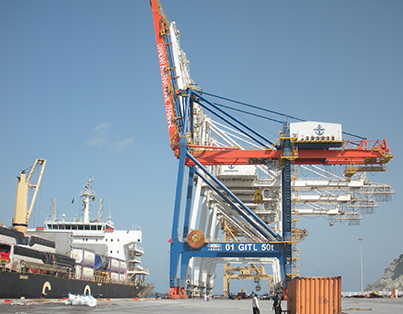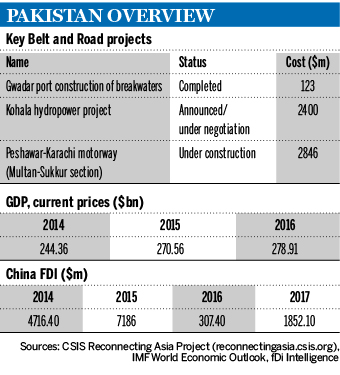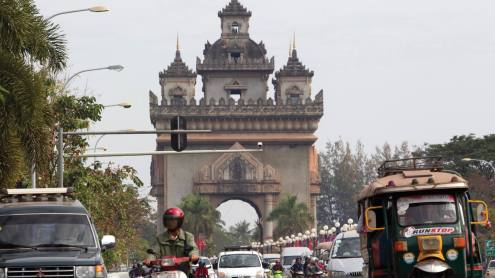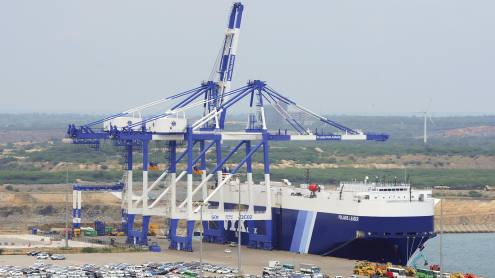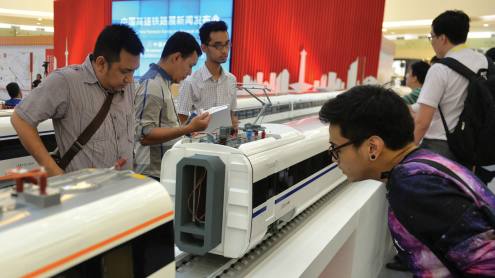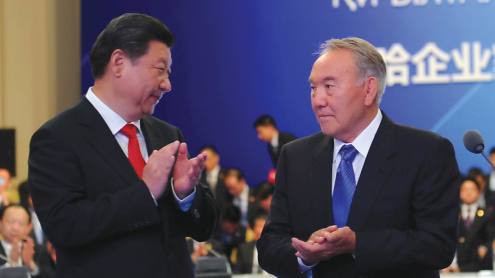The idea of transforming the ancient fishing village of Gwadar into a bustling port city has been around since at least 1954, when Pakistan commissioned the US Geological Survey to examine its coastline. Its conclusion: Gwadar, which sits on the Arabian Sea, would be an ideal location for a deepwater port.
Gwadar’s potential went unrealised for decades, but it is now at the heart of an ambitious plan known as the China-Pakistan Economic Corridor. China has pledged to spend $63bn to bolster Pakistan’s power plants, ports, airports, expressways and other infrastructure under the initiative, which Beijing positions as one of the pillars of its $1000bn Belt and Road Initiative (BRI).
The investment is clearly visible at Gwadar. More than 1000 people, about half of them Chinese, work at a recently completed 660-metre container terminal. Nearby is a hospital built using Chinese funds. Pearl Continental Hotel, a luxury hotel owned by a local company, stands on a hill overlooking the port. The pier is dotted with Pakistani naval and coastguard ships. Armed boats and pick-up trucks patrol the area, while wooden fishing boats float in the distance.
A route to the sea
The gains for China in all of this development are perhaps less visible – but potentially more significant. A major part of the plan is to link China’s landlocked western region to the port at Gwadar with roads and railways. This would allow ships carrying oil and other goods from the Persian Gulf to avoid the chokepoint of the Straits of Malacca, shaving thousands of kilometres off existing routes.
For all this grand ambition, some analysts have doubts. Pakistan’s trade deficit with China has been rising, and there are concerns about what happens if it is unable to repay its debt. As with other poor countries that have benefited recently from Beijing’s largesse, some in Pakistan worry that the price of such investment could be a huge burden of debt.
Mushtaq Khan, former chief economic adviser at the State Bank of Pakistan and founder of advisory firm Doctored Papers, acknowledges that the country’s debt to China is rising. But, he says, China “cannot afford” to bankrupt Pakistan. “China’s primary interest in Pakistan is geopolitical rather than strictly economic, and therefore, for China, repayment of the debt burden will be secondary to maintaining a good political and economic relationship with Pakistan,” says Mr Khan.
The risks are not confined to Pakistan, however. Rail and highway links supported by China require construction in difficult terrain, and there are security risks. In 2017, 10 Chinese labourers were gunned down while working near Gwadar.
Gwadar, with a population of 110,000, lies 650 kilometres west of Karachi and just 70 kilometres away from the border with Iran. China refers to neighbouring Pakistan as its “all-weather friend” but the latter is not renowned for its healthy business climate. Pakistan ranked 147th out of 190 countries in the World Bank’s Ease of Doing Business Index for 2018.
Closer ties with China also come amid strains between Pakistan and the US. In January, the US State Department announced that it would suspend security assistance to Pakistan over what it called a failure to clamp down on terror groups.
Transforming Gwadar
The government of Pakistan plans to transform Gwadar into one of the world’s largest port cities by 2055, housing steel mills, terminals for liquefied natural gas, oil refineries and other facilities. Under the plan, trade and industrial zones will be concentrated on the city's east side, while the western side of the peninsula will serve as residential and tourism areas.
“Gwadar port will be a hub to link Afghanistan and central Asia, but it is not just a trade and logistics centre. We will set up an industrial estate with export manufacturing zones, and invite the motorcycle and electronics industries,” says Dostain Khan Jamaldini, chairman of Gwadar Port Authority.
“Gwadar port is not given to China only,” he adds, stressing the authority’s willingness to welcome US, Europe and Asian companies. He denies speculation that China could try to make Gwadar a military port in the future. “Gwadar is 100% commercial. If China [has military] needs, we have Normara Naval Base near here. We have nothing to hide,” says Mr Jamaldini.



